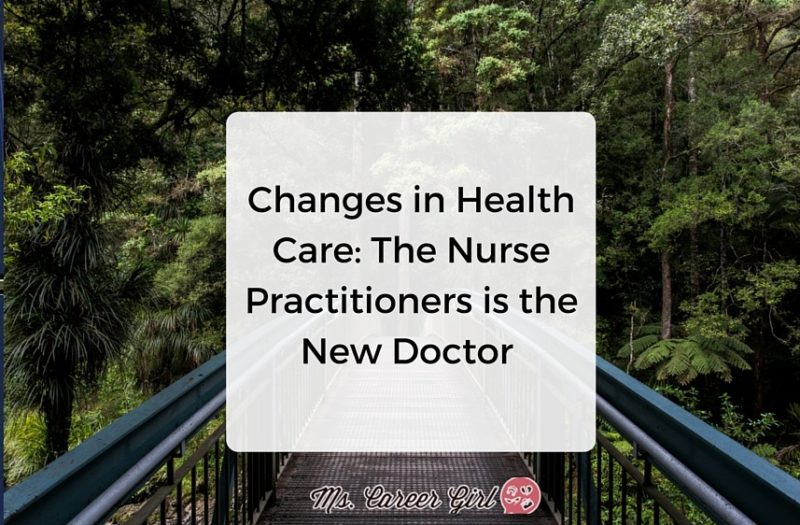Changes in Health Care: The Nurse Practitioners is the New Doctor

Doctors have long been the rock stars of the medical world. The American people are a tad obsessed with the profession. Generations of children have listed doctor as their dream profession. Dozens of medical dramas have followed young and attractive doctors as they save the lives of their patients. The medical drama that has a nurse as one of the main cast is incredibly rare.
Why this obsession? Doctors diagnose potentially life threatening conditions, prescribe medicine and conduct surgery. Traditionally they have a level of autonomy that nurses have not had. And as an added bonus, the profession grants a six figure salary.
Doctor Is Not the Only Option
Times have changed. In some states, nurse practice laws have been passed granting nurses more autonomy. Hawaii, Maine, Oregon, and a dozen other states have passed laws to grant licensed nurse practitioners (NP) the ability to evaluate, diagnose, manage treatments, and prescribe medication without consulting or being supervised by a licensed physician.
NP’s can either be granted more autonomy while working with a health professional team or be granted the ability to start and head their own private practice. Not every state offers that level of freedom, a few states, including Texas and California, require that all NPs be supervised and managed by a physician. Check out the American Association of Nurse Practitioners’ State Practice Environment to determine how much autonomy you could potentially have if you pursue NP certifications in your state.
Due partly to states like Oregon and Main granting full practice to Nurse Practitioners, the need for nurse practitioners is high. By 2020, the number of jobs available to NPs is expected to grow by 31%. Chances are if you pursue a NP career, you will be able to find a job. As if the high job prospects isn’t enough of a perk, a career as a nurse practitioner has an average annual salary of $92,670. And the top paid NPs even break into the lower end of a six figure salary at $110,130 a year.
What Does It Take to Become an NP?
NPs must have either a Master of Science in Nursing (MSN) or Doctor of Nursing Practice (DNP). And to even get into a MSN or DNP program, colleges like Ohio University expect their prospective students to have a BSN from an accredited university and a current RN license. Other colleges like the University of Arizona only expect their students to have Associates Degree in Nursing (ADN). ADN to MSN programs will allow nursing students to pursue their BSN and MSN at the same time.
Beyond an MSN, practicing NPs must achieve certification by one of the five nurse practitioner certifying organizations. Certification is achieved by taking an exam created by one of the organizations.
Individuals looking for a career change and medical professionals hoping to advance their careers, might want to consider becoming a nurse practitioner. In many states, nurse practitioners can be a solid alternative to becoming a doctor. You can find more medical career opportunities to pursue as you contemplate your future by checking out this article. Now might be the time for a change.




